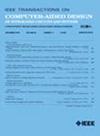Toward Fast Heterogeneous Virtual Prototypes: Increasing the Solver Efficiency in SystemC AMS
IF 2.9
3区 计算机科学
Q2 COMPUTER SCIENCE, HARDWARE & ARCHITECTURE
IEEE Transactions on Computer-Aided Design of Integrated Circuits and Systems
Pub Date : 2025-03-25
DOI:10.1109/TCAD.2025.3554612
引用次数: 0
Abstract
The development of modern heterogeneous systems requires early integration of the various domains to improve and verify the design. Heterogeneous virtual prototypes are a key enabler to reach this goal. In order to efficiently support the development, their high simulation speed is of utmost importance. This article introduces measures to speed-up SystemC analog/mixed-signal (AMS) simulations which are commonly used to simulate the AMS part jointly with the digital prototype in SystemC. Two approaches to integrate variable-step ordinary differential equation solvers into the simulation semantics of SystemC AMS are presented. Both of them avoid global backtracking. One is well suited for feedback loops and the other is favorable for systems dynamically reacting onto events. Moreover, a timestep quantization is developed that overcomes the recurrent matrix inversion bottleneck of variable-step implicit solvers. A similar method is then used to increase the simulation speed of electrical linear network models with high switching activity. Various experiments from the context of smart sensors are presented which prove the effectiveness for enhancing the simulation speed.面向快速异构虚拟原型:提高SystemC AMS的求解效率
现代异构系统的开发需要早期集成各个领域,以改进和验证设计。异构虚拟原型是实现这一目标的关键。为了有效地支持开发,它们的高仿真速度至关重要。本文介绍了在SystemC中常用的模拟/混合信号(AMS)仿真方法,并结合数字样机对AMS部分进行仿真。提出了将变步长常微分方程求解器集成到SystemC AMS仿真语义中的两种方法。它们都避免了全局回溯。一种非常适合于反馈循环,另一种适合于系统对事件的动态反应。此外,还提出了一种时间步量化方法,克服了变步隐式解的循环矩阵反演瓶颈。然后采用类似的方法来提高具有高开关活度的电线性网络模型的仿真速度。在智能传感器的背景下进行了各种实验,证明了提高仿真速度的有效性。
本文章由计算机程序翻译,如有差异,请以英文原文为准。
求助全文
约1分钟内获得全文
求助全文
来源期刊
CiteScore
5.60
自引率
13.80%
发文量
500
审稿时长
7 months
期刊介绍:
The purpose of this Transactions is to publish papers of interest to individuals in the area of computer-aided design of integrated circuits and systems composed of analog, digital, mixed-signal, optical, or microwave components. The aids include methods, models, algorithms, and man-machine interfaces for system-level, physical and logical design including: planning, synthesis, partitioning, modeling, simulation, layout, verification, testing, hardware-software co-design and documentation of integrated circuit and system designs of all complexities. Design tools and techniques for evaluating and designing integrated circuits and systems for metrics such as performance, power, reliability, testability, and security are a focus.

 求助内容:
求助内容: 应助结果提醒方式:
应助结果提醒方式:


